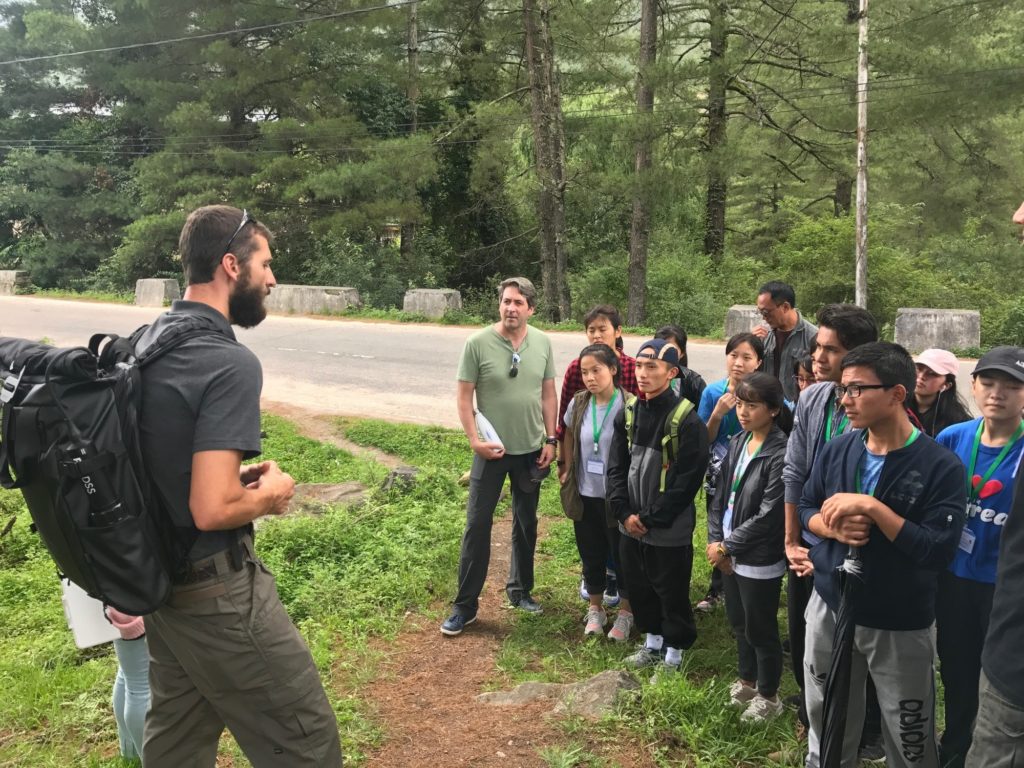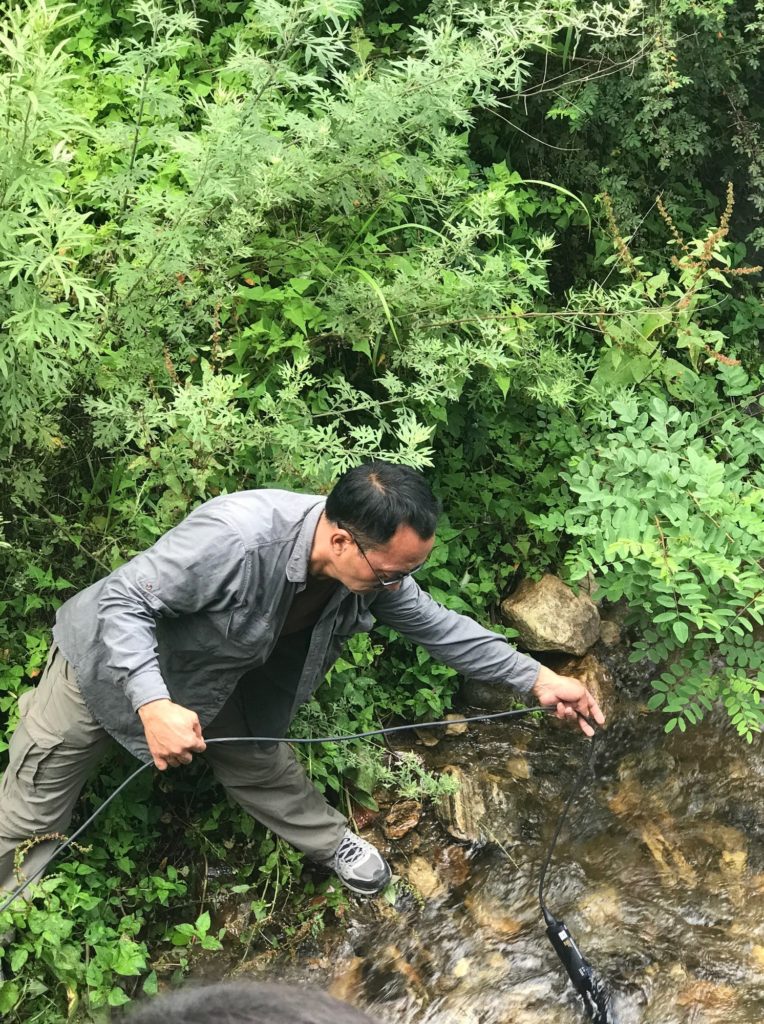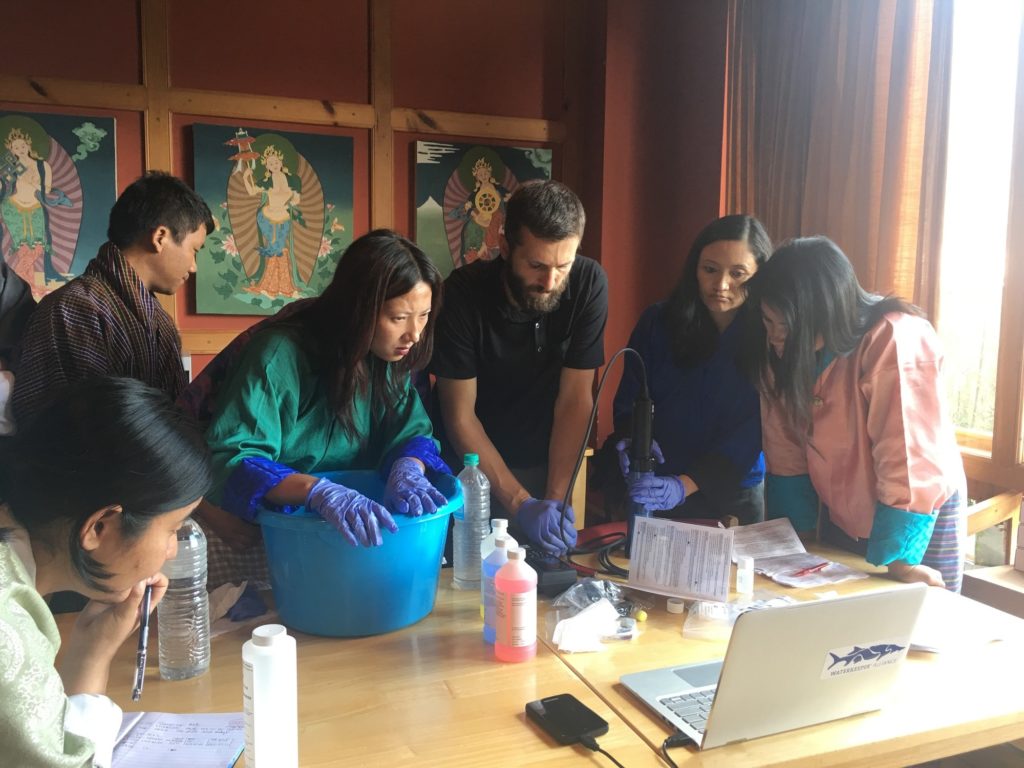Even Near-Pristine Bhutan Needs Waterkeepers
By: Marc Yaggi

The Kingdom of Bhutan possesses incredible natural resources, such as rushing waters, green-forested land and crisp mountain air. And an ethic of natural-resource stewardship resounds from the royal family to the prime minister to Buddhist monks to citizens across the land. Their constitution requires that at least 65 percent of the country remain forested, and Bhutan is widely hailed as “carbon negative.” But despite this great regard for their environmental blessings, water-pollution problems can and will happen. In the last year, sewage and trash have contaminated the water supply for more than 1,000 households around the area of Ngabiphu, just outside the capital city of Thimphu, and, throughout the country, increasing levels of development are setting the stage for additional water-quality degradation.
Over the past two years, however, a growing Waterkeeper movement, led by the NGO Clean Bhutan and Waterkeeper Alliance’s Recruiting Director Sharon Khan, has been addressing such problems. It includes Wang Chu Waterkeeper and its affiliates on the Ha Chu, Pa Chu, Upper Thimchu and Lower Thimchu rivers. Waterkeeper Alliance teams have made three visits to Bhutan, most recently last July, to provide this developing network with water-monitoring equipment and training.

That last visit, in which I participated, offered a compelling example of how science, education, law and citizen action intersect to protect waterways and communities. Good science is needed to understand what is polluting the water and how polluted it is; law is needed to create and enforce standards to stop pollution, and education is needed to help people understand how it affects them and how to prevent it. Bhutan has a good clean-water law that was enacted in 2014, but its effectiveness depends on scientific data to help support policy and enforcement.

Along with Nedup Tshering, founder and director of Clean Bhutan, and Shristi Sharma, the new Wang Chu Waterkeeper, we took water samples at sites in Paro and around Thimphu. Unfortunately, there was evidence of E.coli in some of the water, indicating that it may not be safe for drinking or recreation, and this discovery made front-page news in the nation’s biggest newspaper. Christian Breen, Waterkeeper Alliance’s field investigator, provided the Bhutan Waterkeeper team with extensive training on using water-quality-monitoring equipment, which will enable them to sample waterways every other week. As a result, they will be able to notify government officials and the public when water sampling indicates the presence of pollutants.
We were honored also to provide the first environmental-law instruction and field training to the 25 students in the inaugural class of Bhutan’s first law school. After we discussed Waterkeeper Alliance’s history and Clean Bhutan’s work, and we heard the students’ views on water pollution, environmental law and climate change, we set out on a water-monitoring field-course.
Bhutan, as we told the students, is fortunate to have water resources that are, for the most part, pristine. Neighboring countries may well look across their borders at it with envy, aware that, like nearly all nations, they have recklessly polluted their waterways and incurred tremendous public-health, social and financial costs.

Christian Breen provides initial classroom training to the Wang Chu Waterkeeper team in Thimphu, Bhutan. Photo by Waterkeeper Alliance.Despite the challenges presented by Bhutan’s rapid development, we are optimistic that their strong tradition of natural-resource stewardship, combined with the growing water-monitoring program, the Bhutanese Waterkeeper teams’ commitment to citizen action, and input from budding legal minds, will ensure that this beautiful land’s water supply will remain among the purest in the world. As one of the new law students remarked after the field training, “With the times changing, I feel that our water is changing every day. We – specifically me – were not concerned about it before. Before, water came out of the tap and we were happy. But now we know we need the data to ensure we develop the standards required to keep our drinking water clean.”